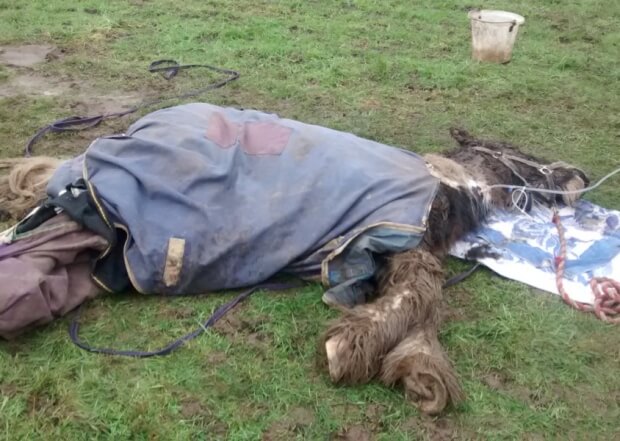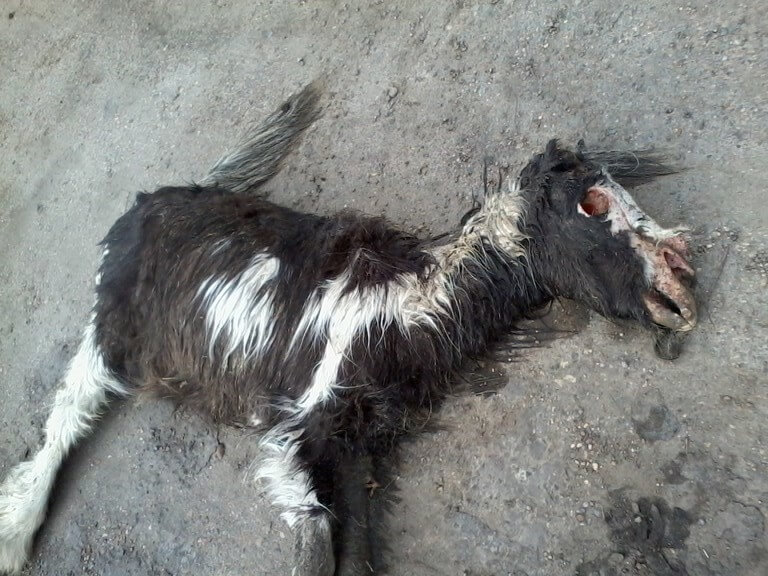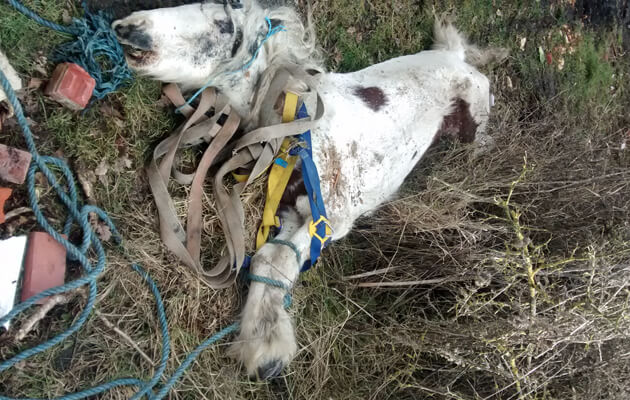


7,000 Horses Under Threat
With over 7,000 horses currently under threat – how you can help
Concerns continue to rise over the escalating horse welfare crisis in the UK. Many thousands of horses around the country are in need of homes or shelter. This post contains some graphic images which demonstrate the all too real impact of this issue.
Why is this? Problems with indiscriminate horse breeding and the current economic climate mean that many people have horses that they can’t afford to feed or shelter – or pay for veterinary care. All horse charities have seen an increase in horses found straying on roads, being abandoned at livery yards, or dumped on land, whether council or private.
- In Kent, for example, over the first couple of months of 2016. animal charities saw a spate of dumped horses – including 25 that were dead, dying or in really poor condition.
- In 2014 alone, Swansea council received 664 complaints relating to horses and seized 225 animals, at a cost estimates at £74,000. And between 2012 and 2014, the authority destroyed 224 horses.
- 33 years after the Mardyke Plains disaster (see below), we see that the RSPCA is allowing a number of horses stranded thigh-deep in water near Wellingborough embankment to remain, despite already losing one in January. Situations like this need to be addressed before the animals die.
- In 1983, we saw 13 horses die as a result of being cut-off on Rainham Marshes as the plains flooded, just one of the reasons why Remus was founded. Every year since we battle with Thurrock Council to avoid this same scenario re-occurring on the Mardyke.
Daily alerts of dead, dumped horses and foals across the country is a common occurrence. Many believed to be the responsibility of travelers.
Last year, The Control of Horses Act 2015 gave landowners more control over what they could do with horses illegally placed on their land, called fly-grazing, by irresponsible owners. They now have the right to seize control of the horse after four days, and it can be sold or given to a charity, such as Remus. Whilst this has enabled landowners who don’t want fly-grazed horses on their land to act to remove them, many corporate landowners don’t care and aren’t prepared to pay to have them moved, so thousands of horses are not protected by this Act.
While this is good news for the horses, which are often left unchecked on land, with no shelter from the elements, it does mean that charities will be under even more pressure to care for them, and that all costs money, rescuing one horse can cost up to £1,500, which does not allow for the animal’s ongoing care, upkeep or vet bills should he become ill.
Here at Remus Horse Sanctuary, we have 10 staff to care for our animals, plus a band of wonderful volunteers, whose tireless efforts make such a big difference to what we can do as a Sanctuary.
Although we take in any horse that needs care, we have particular expertise in looking after veteran animals. Horses can live well into their thirties, in fact we’ve been home to three of the oldest horses in the world, and we ensure that however badly they have been treated before they come to us, all our residents are well-fed, happy and pain free – and enjoying life.
Many of our animals are available for Sponsorship for only £2 a month by Standing Order, or £25 a year. Sponsorship is of enormous help to us, it allows us to care for the animals at the Sanctuary and helps fund our important welfare work in the wider community. Click here to find out more about our Sponsorship Scheme.
Please help us tackle this growing crisis – every donation can really make a difference – go to https://www.remussanctuary.org/donate/ and please, if you can, donate whatever you can, even if its just £5 a month via JustGiving or PayPal.










